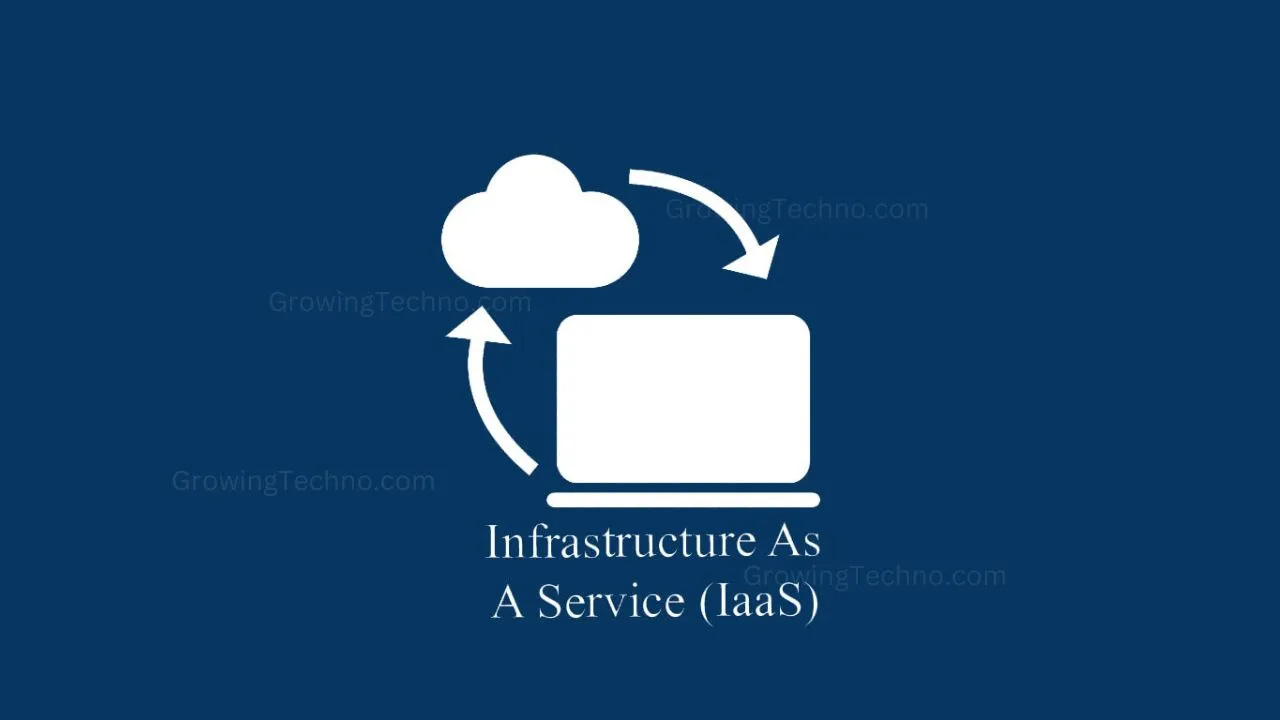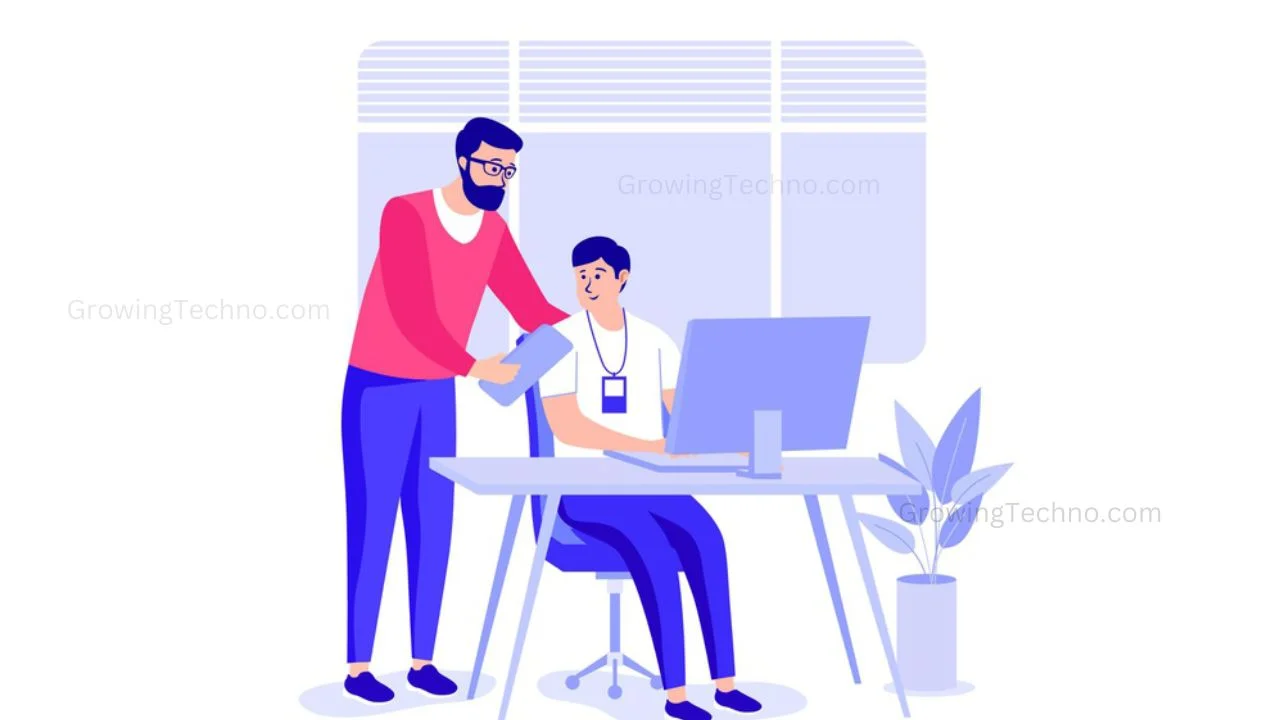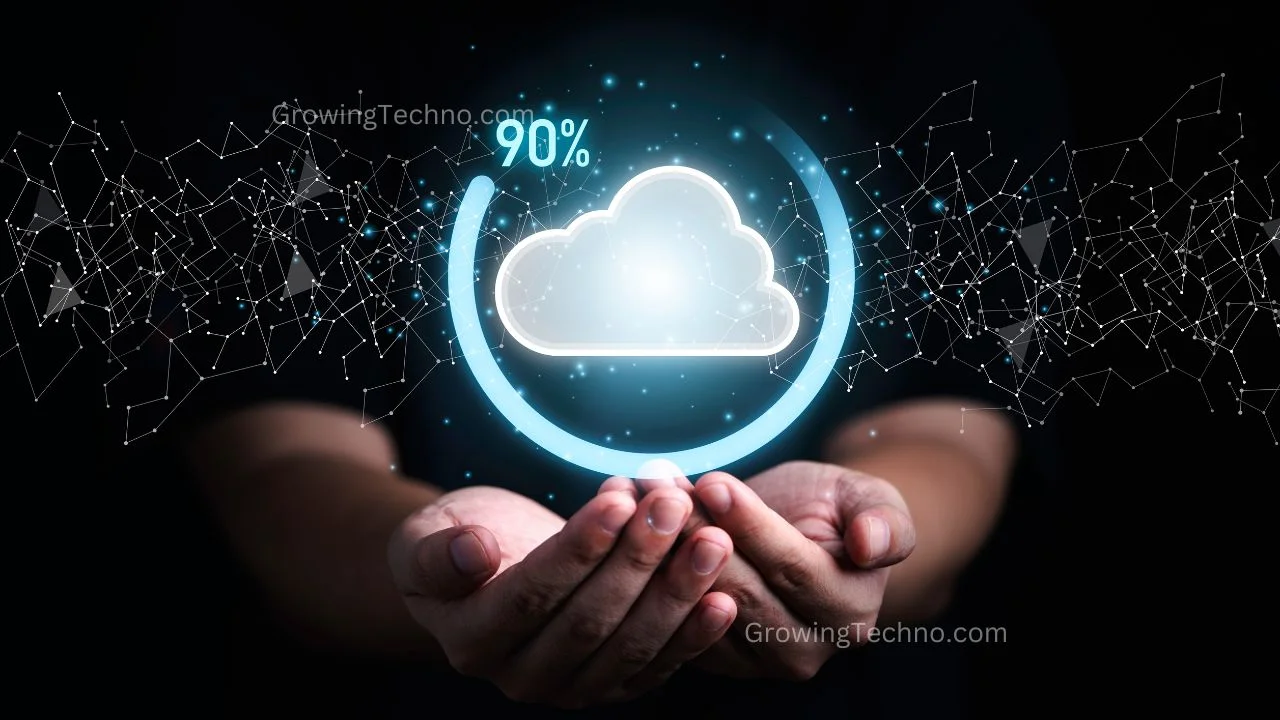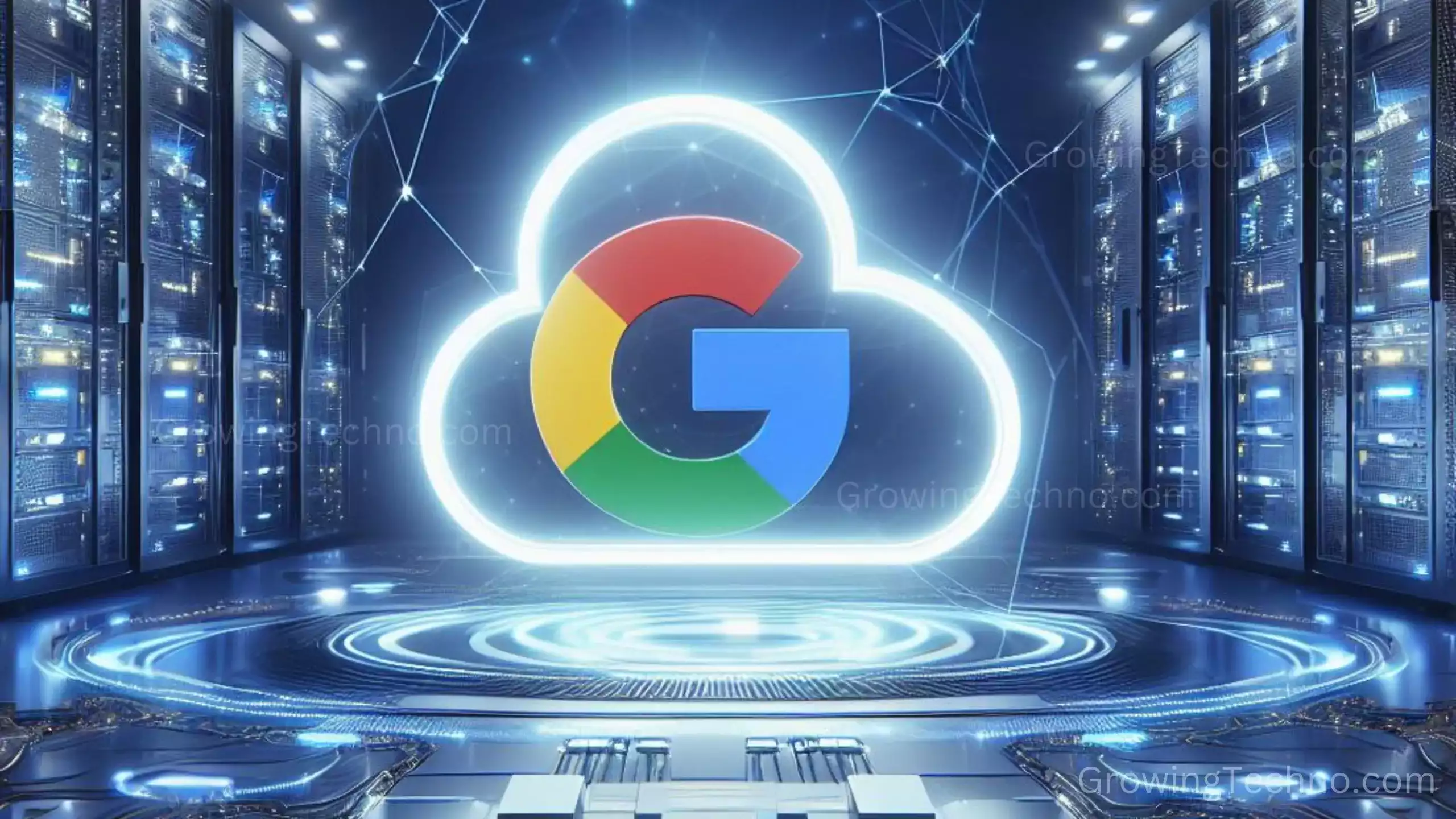
In today’s rapidly evolving digital landscape, businesses are on a quest for innovative solutions to bolster their operations, boost efficiency, and maintain a competitive edge. One of the transformative tools that have come to the forefront is Google Cloud Platform (GCP), a comprehensive cloud computing platform developed by the tech giant Google. This article seeks to demystify GCP, focusing on what it is and, more importantly, delving into how it can be a game-changer for your company. Our goal here is to break down the complexities, explain the intricacies in plain language, and use short and straightforward sentences to make everything crystal clear.
Understanding Google Cloud Platform
What Is Google Cloud Platform?
In essence, Google Cloud Platform, often abbreviated as GCP, is a suite of cloud computing services that Google offers. Think of it as a one-stop shop for all your cloud computing needs. It’s packed with tools, products, and services to empower businesses, developers, and individuals to leverage the incredible capabilities of cloud computing.
The Basics: Infrastructure and Services
To put it simply, GCP operates from a network of data centers spread across the globe. These data centers form the backbone of GCP, enabling you to securely store, process, and analyze data. It provides a smorgasbord of services like computing power, data storage, databases, machine learning, and much more.
Who Can Use GCP?
The beauty of GCP lies in its versatility. It’s not just for the big corporations; it caters to startups, small businesses, developers, and anyone who wants to make use of cloud computing to run their projects, applications, or even the whole business.
The Benefits of the Google Cloud Platform
- Scalability: Imagine your resources as elastic bands that you can stretch or shrink according to your needs. GCP gives you this incredible flexibility. It means you can easily handle high traffic or expand your services as your business grows.
- Cost Efficiency: No more costly upfront investments in physical hardware. With GCP, you only pay for what you use. It’s like paying for electricity – you pay for the amount you consume. This flexibility can significantly cut down on your operational costs.
- Reliability and Security: When you sign up with GCP, you’re plugging into Google’s extensive network of data centers. This means high reliability, data redundancy, and backup to ensure your business never faces downtime. Security is woven into every part of GCP, with features like encryption and authentication to keep your data locked up tight.
- Global Reach: GCP isn’t tied down to one corner of the world. It boasts data centers in regions across the globe. What does this mean for you? It means you can deliver your services from data centers closer to your users. This reduces the time it takes for your data to travel, making your services faster and more efficient.
Key Services of Google Cloud Platform
Compute Engine
Compute Engine, one of the exceptional services offered within Google Cloud Platform (GCP), is akin to having an expansive and dynamic virtual workspace at your disposal. It’s like having your very own virtual computer where you can run applications, perform complex calculations, and execute various computing tasks without ever having to worry about the underlying hardware or infrastructure. In simpler terms, imagine having a computer that can instantly adapt to your needs, whether you require it to handle a single application or multiple applications simultaneously.
Cloud Storage
Within the vast array of GCP services, Cloud Storage stands out as the virtual vault for safeguarding your invaluable data. It’s where you can securely and seamlessly store your data, much like having a digital repository tailored for your backup needs, long-term data archival, or serving content to your applications and websites. Think of it as an ultra-secure digital locker, accessible whenever you need to store, retrieve, or share your essential files and information. In essence, it provides a virtual space for preserving your digital assets with peace of mind.
BigQuery
In the realm of data analysis and processing, GCP offers BigQuery, a remarkable analytical powerhouse. It’s like gaining access to a supercomputer specifically designed for the swift and efficient sifting through vast mountains of data. BigQuery is not just fast; it’s exceptionally well-managed, making it your ideal tool for discovering insights and trends hidden within your data. This service empowers you to uncover valuable information in the blink of an eye, without the need for extensive data management or the complexities often associated with large-scale data analysis.
Kubernetes Engine
Kubernetes Engine is a unique service within GCP that simplifies the management of containers. Think of containers as convenient, self-contained packages that hold your applications, much like boxes that store your belongings. With the Kubernetes Engine, you have a powerful tool at your disposal to easily oversee and manage these containers, making it perfect for those who want to swiftly create, deploy, and scale their applications. It’s like having a magic wand for application management, allowing you to effortlessly orchestrate your software and ensure it runs efficiently and effectively.
Cloud Machine Learning
Machine learning, a transformative technology that’s taking the world by storm, is readily accessible within Google Cloud Platform. Through the Cloud Machine Learning service, GCP empowers you to venture into the world of artificial intelligence and data-driven insights. This is where the magic unfolds; you can build, train, and harness your own machine-learning models, tailored to your specific needs. These models serve as your digital assistants, enabling you to automate tasks or gain profound insights from your data. In essence, it’s like having a personal data wizard that not only understands your data but can also help you derive actionable knowledge from it, revolutionizing the way you interact with information and make data-driven decisions.
Real-World Use Cases
- E-commerce: If you’re in the e-commerce business, GCP can be your secret sauce. It allows you to manage heavy traffic with ease, store vast product catalogs, and dish out personalized recommendations to your customers.
- Healthcare: Healthcare providers can rely on GCP to securely manage patient data, support telemedicine services, and speed up medical research through data analysis. It’s like having a virtual lab for all your healthcare needs.
- Startups: Startups can hit the ground running with GCP. It’s like having a launchpad for your next big idea. You can start small and quickly scale as your business takes off.
- Gaming: The gaming industry loves GCP. It’s the place to be for hosting multiplayer games, analyzing player behavior, and keeping global communities connected.
Getting Started with Google Cloud Platform
- Setting Up Your GCP Account: So, you’re excited to get started with GCP? The first step is to create an account. It’s a simple process, and you may need to add a payment method for billing purposes.
- Navigating the Console: Once you’re in, you’ll spend most of your time in the GCP Console. This is where the magic happens. You can use it to access all the services and resources GCP offers.
- GCP Free Tier: Here’s the icing on the cake – GCP offers a free tier with a specific amount of usage at no cost. It’s like getting a free sample before you buy the whole product. This is an excellent way to get started and explore the platform without initial expenses.
Tips for Success
- Learn and Explore: Learning and exploration are key to GCP’s success. GCP offers extensive resources, like having a knowledgeable guide by your side. These include documentation, user-friendly tutorials, and comprehensive courses. They serve as your references and mentors, whether you’re a beginner or an expert.
- Start Small and Scale Gradually: A vital strategy is to start small and grow slowly. This is like learning to ride a bicycle before a motorcycle. GCP’s flexibility allows you to begin with modest projects and expand as your needs increase. This ensures a smooth journey without unnecessary complexities.
- Cost Management: Monitoring expenses is crucial. GCP provides tools to help you manage costs efficiently. These tools act like financial advisors, guiding you to stay within your budget and optimize your cloud resources.
These strategies are your companions in your GCP journey, ensuring you navigate confidently and reach your cloud computing goals.
GCP vs. Competing Platforms
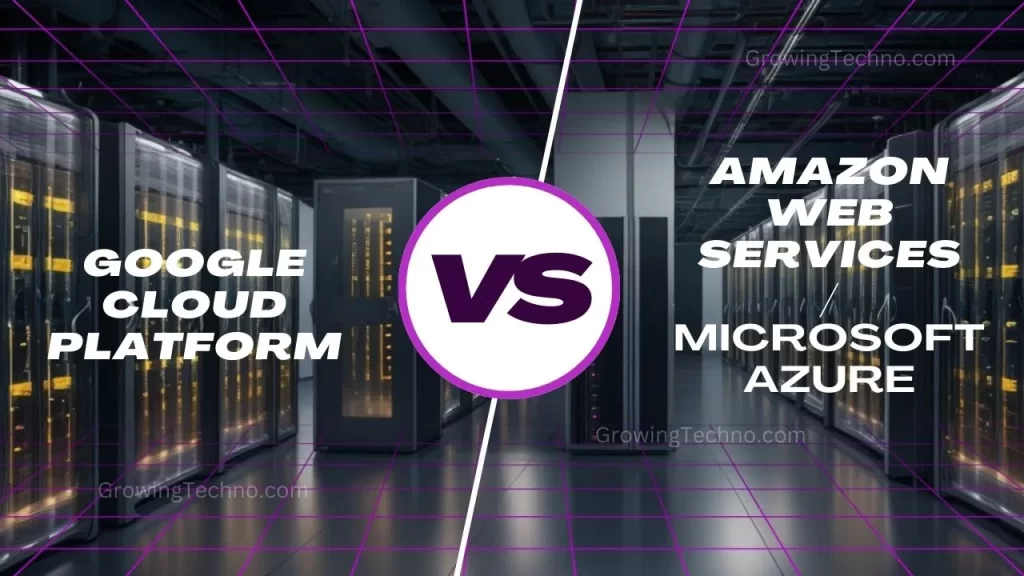
Amazon Web Services (AWS)
Amazon Web Services, commonly referred to as AWS, stands as one of GCP’s most prominent competitors in the cloud computing arena. AWS is like GCP’s friendly neighbor in the cloud neighborhood, offering a comprehensive suite of cloud services and tools. Much like a pair of neighboring businesses that cater to a similar customer base, both GCP and AWS provide a wide array of cloud services. However, each has its unique strengths and features, making them well-suited for specific use cases and industries.
The choice between GCP and AWS often hinges on your organization’s specific needs and preferences. It’s akin to deciding between two trusted local stores, each stocked with an impressive selection of goods. You might choose one over the other based on factors such as pricing, product offerings, or the ease of integration with your existing systems. In essence, GCP and AWS are like two reliable vendors in a bustling marketplace, each with its distinct advantages.
Microsoft Azure
Microsoft Azure, another heavyweight in the cloud platform game, also merits attention when comparing cloud service providers. If your organization is deeply integrated with Microsoft’s suite of products, Azure might be your natural choice. Microsoft’s extensive ecosystem encompasses popular software such as Windows, Office, and various enterprise solutions. Azure seamlessly integrates with these Microsoft offerings, creating a cohesive environment for organizations that heavily rely on Microsoft technologies.
The decision to opt for GCP or Microsoft Azure can be akin to choosing between two well-established ecosystems. It’s similar to deciding whether to reside in a vibrant, bustling city or in a tranquil, suburban neighborhood. GCP may appeal to those seeking a different approach to cloud computing, while Azure is the go-to choice for businesses that are deeply entrenched in the Microsoft ecosystem.
Ultimately, the choice between GCP, AWS, or Azure depends on your organization’s unique requirements, existing infrastructure, and strategic objectives. Each cloud platform offers distinct advantages and features, making it vital to assess which one aligns best with your business goals and technical landscape.
Success Stories
Spotify:
Spotify, recognized as the world’s foremost music streaming service, is synonymous with discovering, sharing, and enjoying music. This innovative platform has revolutionized how we listen to our favorite tunes.
GCP plays a pivotal role in Spotify’s operations, enabling the analysis of vast datasets and the creation of personalized playlists for millions of users worldwide. Spotify’s recommendation system, which suggests songs and playlists, relies on GCP’s robust computing power and analytical tools. This ensures that users discover music that resonates with their tastes.
Imagine the colossal volume of data generated by millions of song plays, user interactions, and artist searches. GCP’s scalability and data processing capabilities are integral to Spotify’s ability to harness this data and deliver a tailored music experience to its global audience.
X, previously Twitter:
Twitter, the beloved social media platform, has become an integral part of the digital landscape. With millions of users posting tweets, sharing content, and engaging with one another, Twitter’s infrastructure must handle immense data flows.
To support its ever-expanding user base and manage the colossal amount of data generated daily, Twitter turned to GCP. The platform’s reliability and flexibility align perfectly with Twitter’s requirements.
GCP’s infrastructure allows Twitter to efficiently process, store, and analyze the massive amounts of data generated by tweets, retweets, likes, and user interactions. This ensures that Twitter remains a responsive and dynamic social media platform, providing a seamless experience for its users.
Conclusion
As we conclude this journey through the Google Cloud Platform, it’s clear that GCP can be a transformative tool for your business. It simplifies complex technologies, offering a wide range of services to meet your needs. Whether you’re an e-commerce giant, a healthcare provider, a startup, or in any other industry, GCP provides the tools to help you scale, innovate, and succeed. The future is in the cloud, and GCP is your ticket to reaching new heights. Start your journey today and witness the positive impact on your business – a future where your company soars to new heights with Google Cloud Platform.


